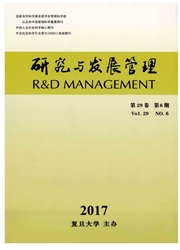

 中文摘要:
中文摘要:
本文基于对中兴通讯股份有限公司(简称中兴通讯)的案例研究,构建了双元学习对组织惰性克服作用的关系机理.研究发现:组织惰性可以分为第一层次的组织惰性与第二层次的组织惰性;利用式学习能够克服第一层次的组织惰性,但会强化第二层次的组织惰性;探索式学习有利于克服两个层次的组织惰性;同时注重探索式学习与利用式学习的双元学习能有效克服两个层次的组织惰性,也更有利于组织的发展.
 英文摘要:
英文摘要:
It conducted a case study on Zhongxing Telecommunication Equipment Corporation (ZTE) and constructed the mechanism of ambidextrous learning to overcome organization inertia. The findings are as follows : organizational inertia can be divided into two levels, first-level inertia and second-level inertia; exploitative learning can overcome first- level inertia, but it will strengthen second-level inertia ; exploratory learning can get rid of two levels' inertia ; ambidextrous learning can overcome first-level and second-level inertia more effectively, and also more conducive to the development of organization.
 同期刊论文项目
同期刊论文项目
 同项目期刊论文
同项目期刊论文
 期刊信息
期刊信息
